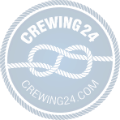
JULY 3, 2012 — As shipowners continue to wrestle with which ballast water management systems to choose, the members of the Canadian Shipowners Association (CSA) have partnered with the Great Ships Initiative (GSI) which operates a ballast treatment testing facility in Superior, WI. This summer, the GCI facility will carry out efficacy tests of ballast water filtration systems in the unique, cold, fresh waters of the Great Lakes and St. Lawrence Waterway (GLSLW). To date no BWM technology has been type-approved for operation in the GLSLW waters, where CSA members' vessels operate.
Lab at Lake Superior testing facility
GCI is a project of the Northeast-Midwest Institute, a regional non-profit research center headquartered in Washington, D.C.
The CSA says that Canadian shipowners are looking proactively to find practical solutions to ballast water management. The membership chose to partner with the world-class, government-funded GSI testing facility to build objective knowledge of technological solutions. Results from the trial of filtration technologies are expected by the end of August 2013.
"Our membership has a track record of leading the use of innovative technologies and best management practices to improve performance, safety and to protect the environment," said Robert Lewis-Manning, President of the Canadian Shipowners Association. Mr. Lewis-Manning further notes, "The partnership of our membership with GSI is important because it builds on our industry's leadership and demonstrates the commitment of the members of the Canadian Shipowners Association to find solutions that are practical, can work in our unique operating environment and will achieve results in a cost effective manner."
Since 2006, a bi-national (Canada - U.S) requirement for mid-ocean ballast water exchange, no new organisms have been detected in the GLSLW from beyond Canadian territorial waters.
The CSA membership operates Canadian-flagged and uniquely designed ships on Canadian coastal, Arctic and inland waters, with Canadian crew and is part of a $36 billion continental GLSLW marine transportation system. Recent investments of over $700 million in 14 new vessels, have positioned the industry for growth.
![[ad-side]](http://www.crewing24.com/ad_images/79_banner.jpg)
![[ad-side]](http://www.crewing24.com/ad_images/77_banner.gif)
![[ad-side]](http://www.crewing24.com/ad_images/105_banner.jpg)
![[ad-side]](http://www.crewing24.com/ad_images/85_banner.jpg)
![[ad-side]](http://www.crewing24.com/ad_images/107_banner.jpg)
![[ad-side]](http://www.crewing24.com/ad_images/80_banner.jpg)
![[ad-side]](http://www.crewing24.com/ad_images/94_banner.png)
![[ad-side]](http://www.crewing24.com/ad_images/87_banner.png)
![[ad-side]](http://www.crewing24.com/ad_images/65_banner.jpg)
![[ad-side]](http://www.crewing24.com/ad_images/115_banner.jpg)